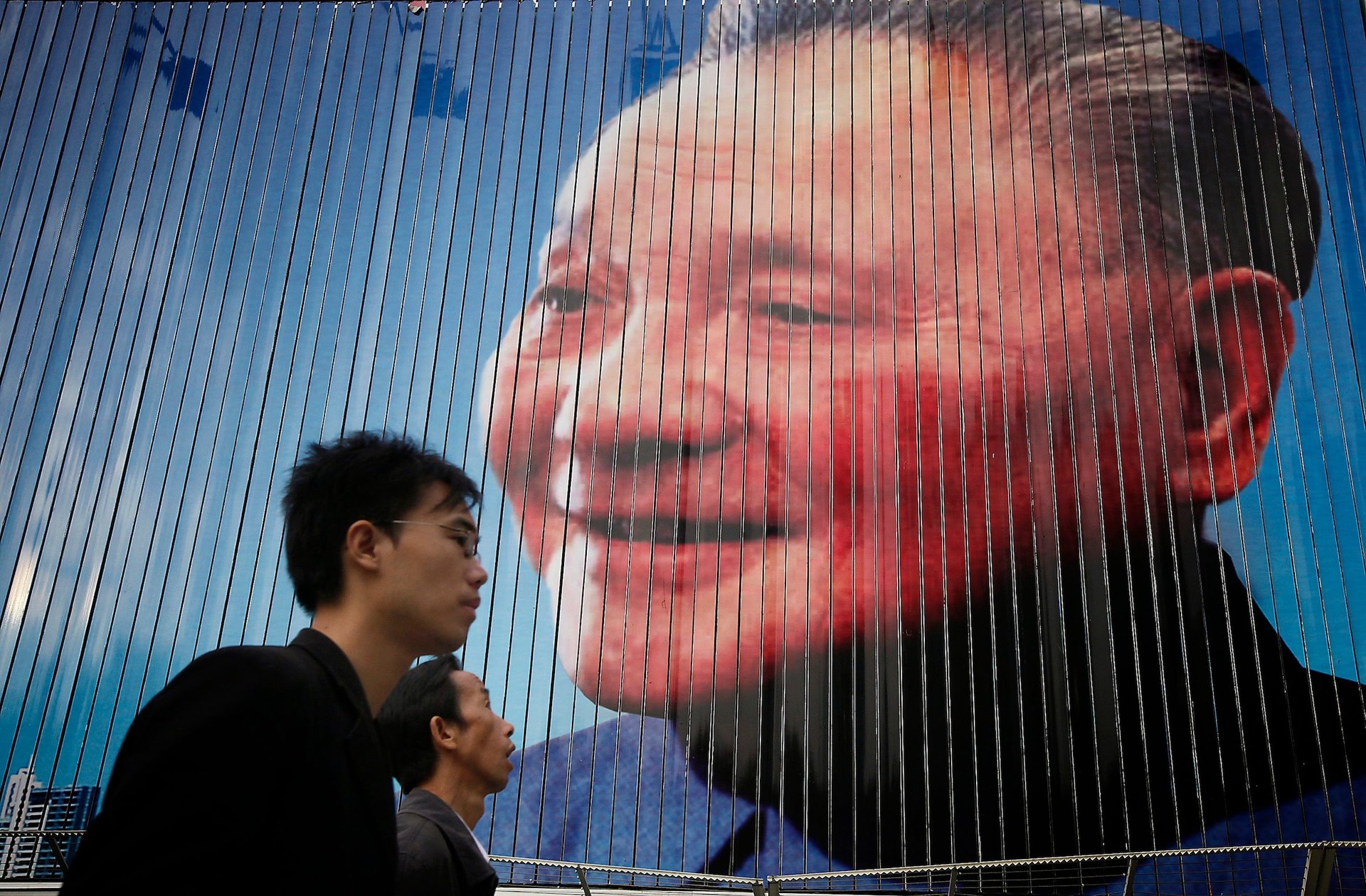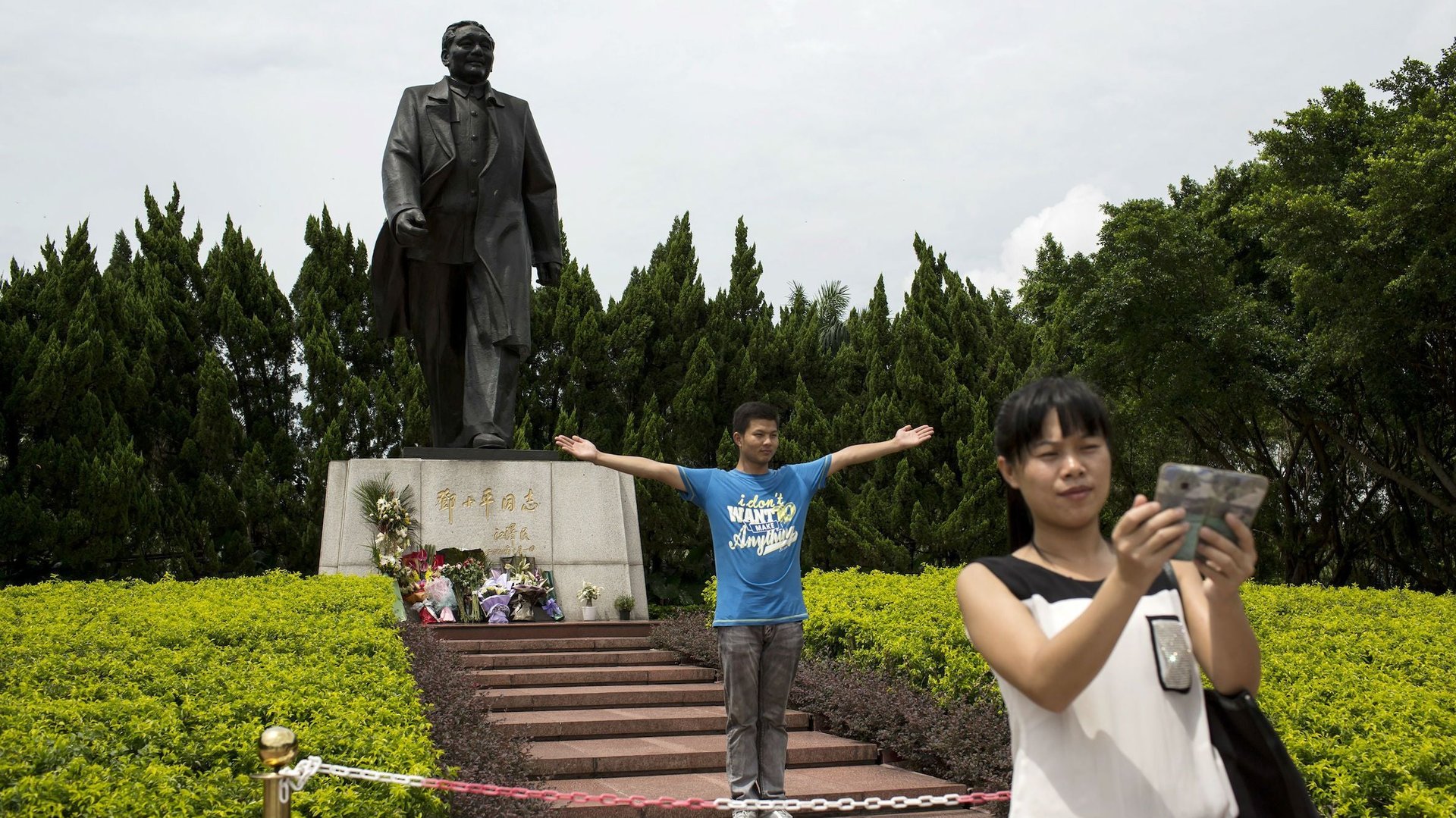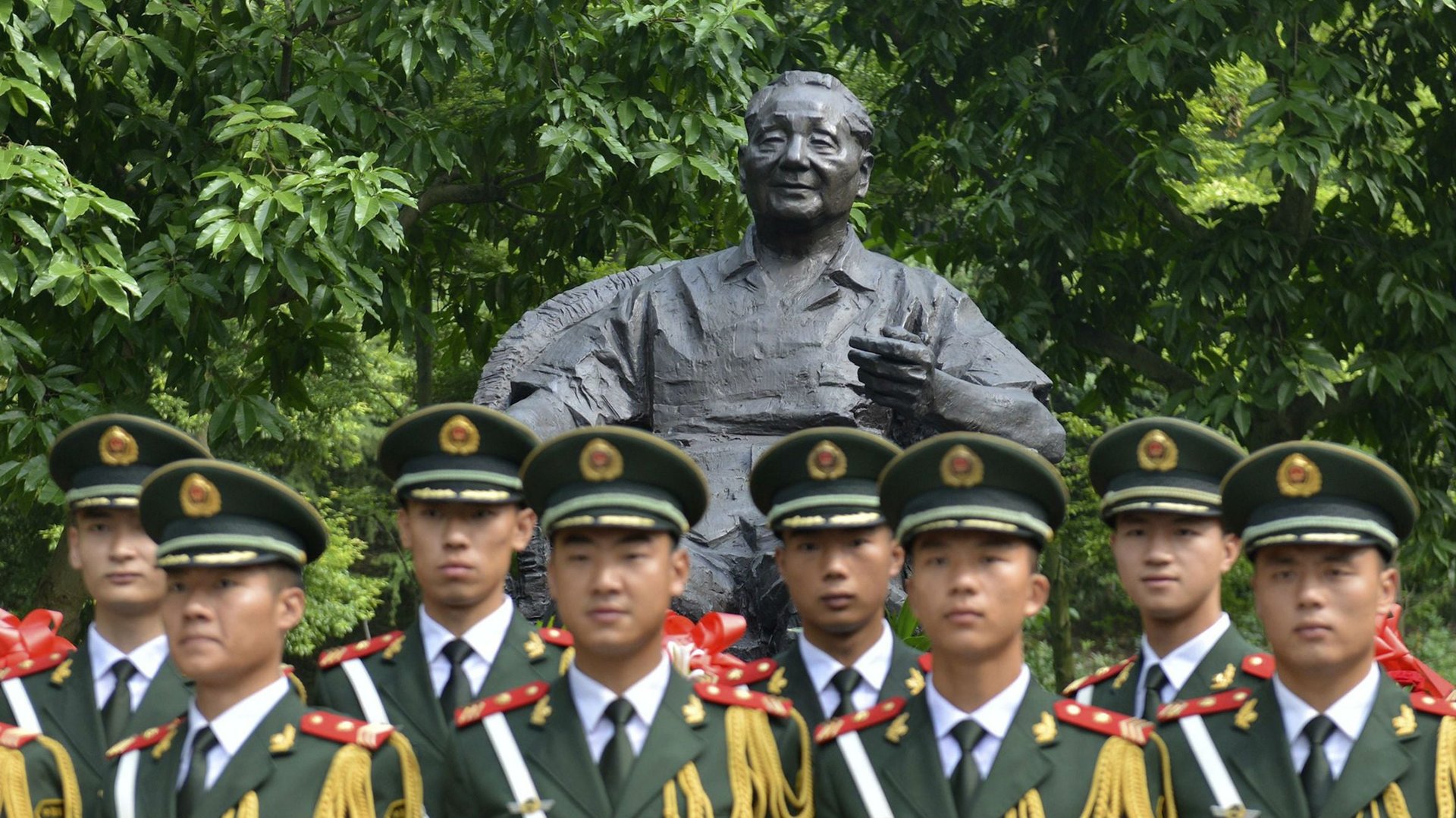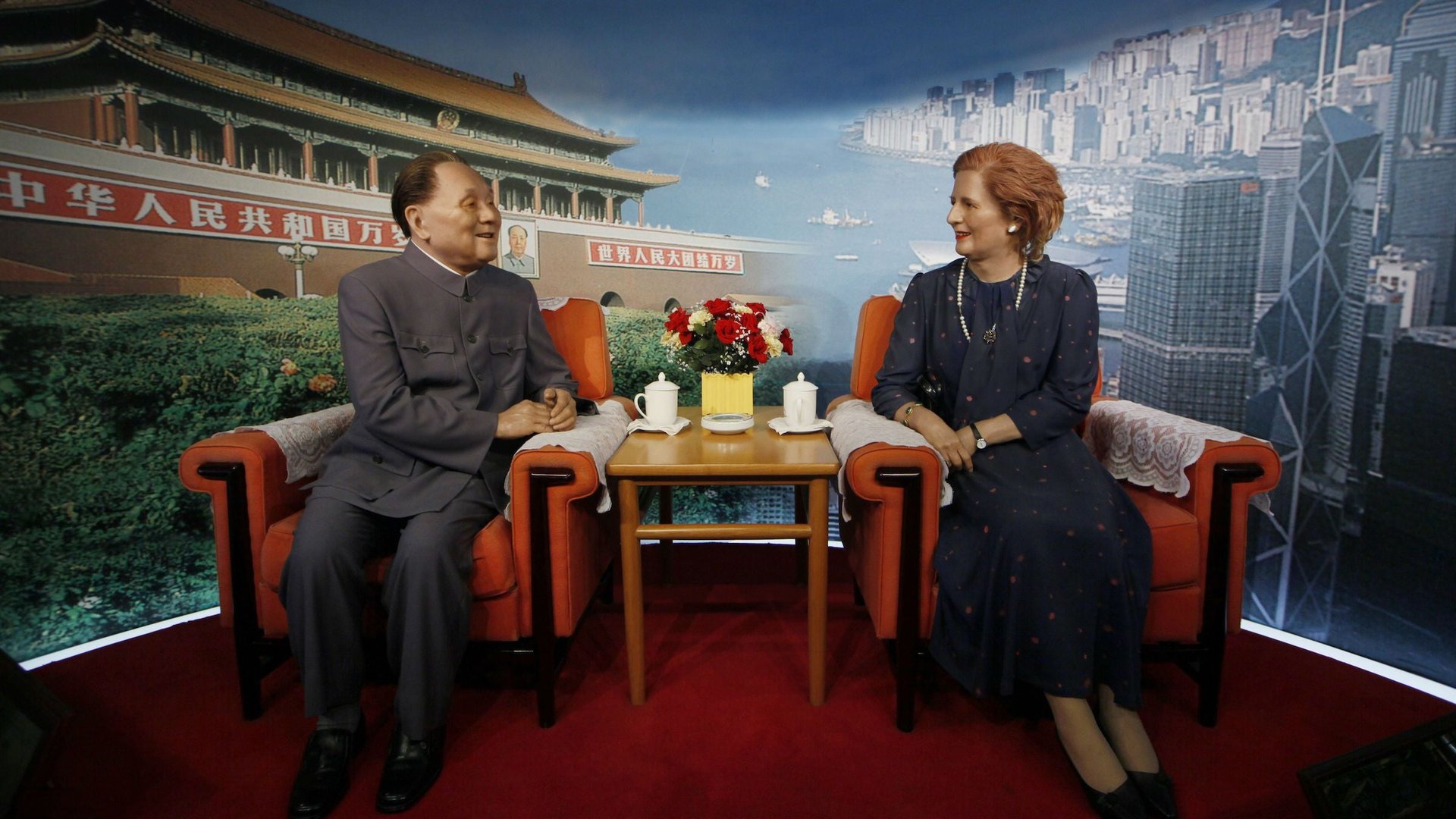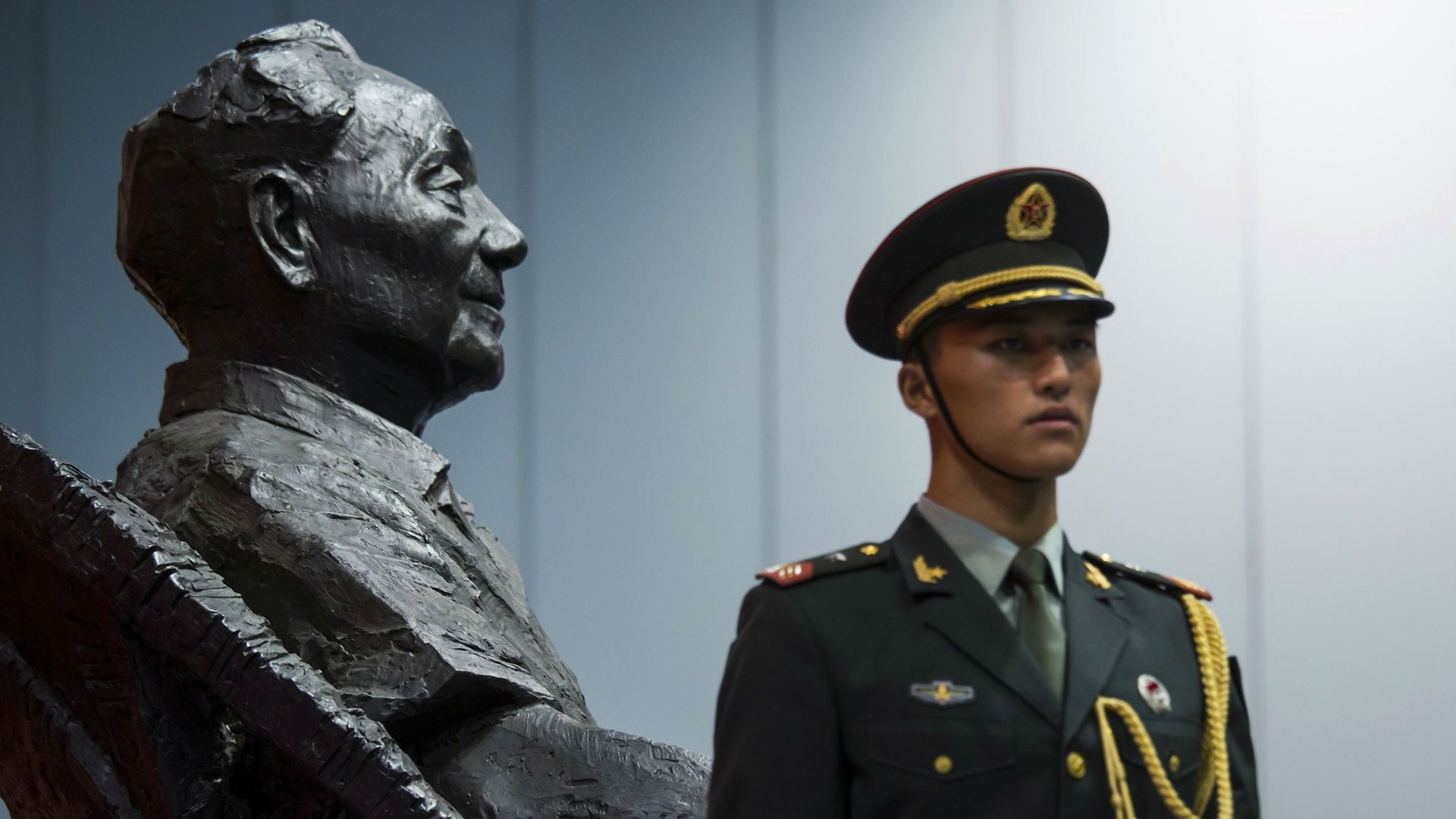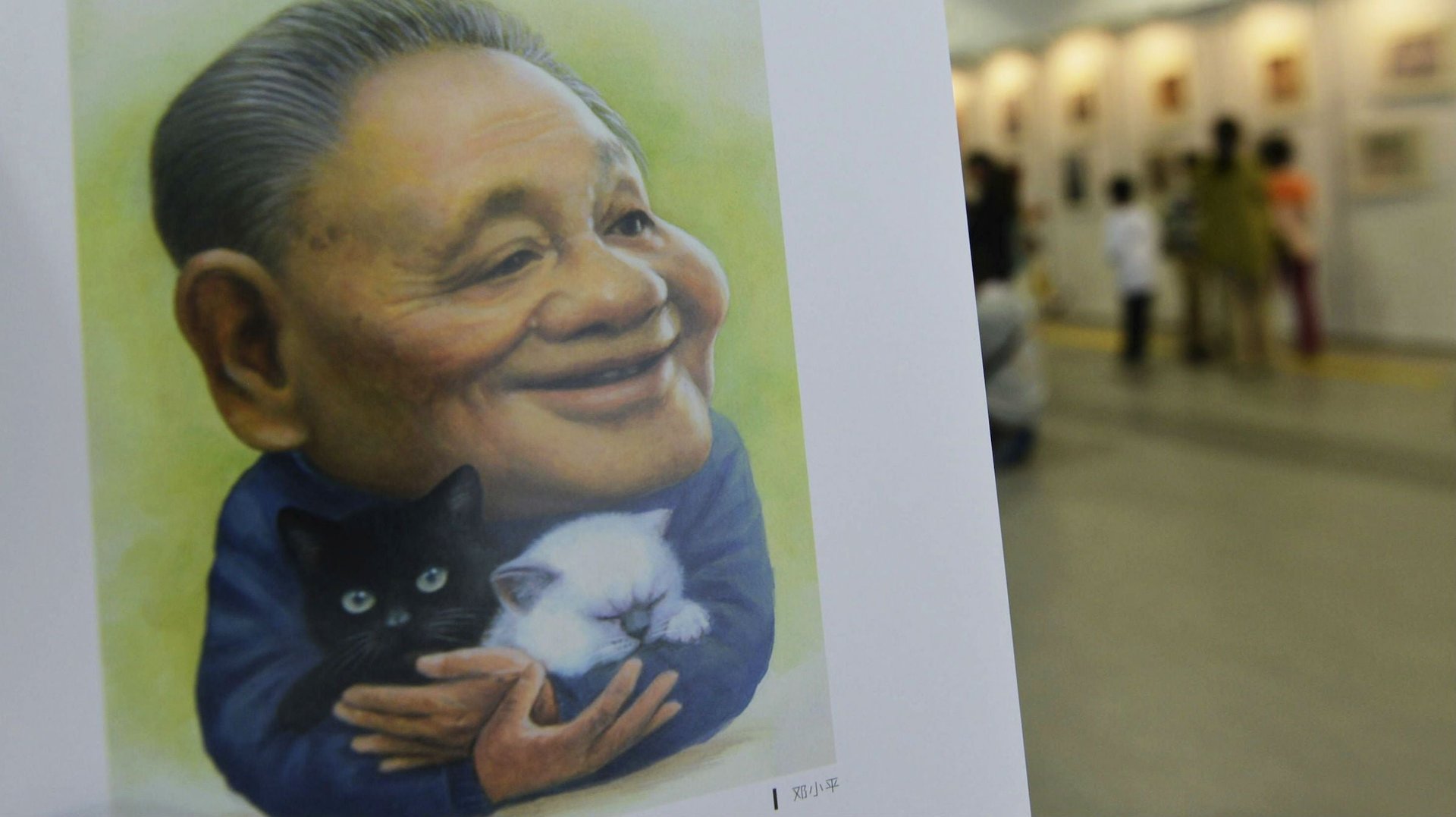Why China is going all out to celebrate the birthday of the man who opened up its economy
China pulled out all the stops for the birthday of the late Deng Xiaoping, the leader credited with opening and transforming the Chinese economy.
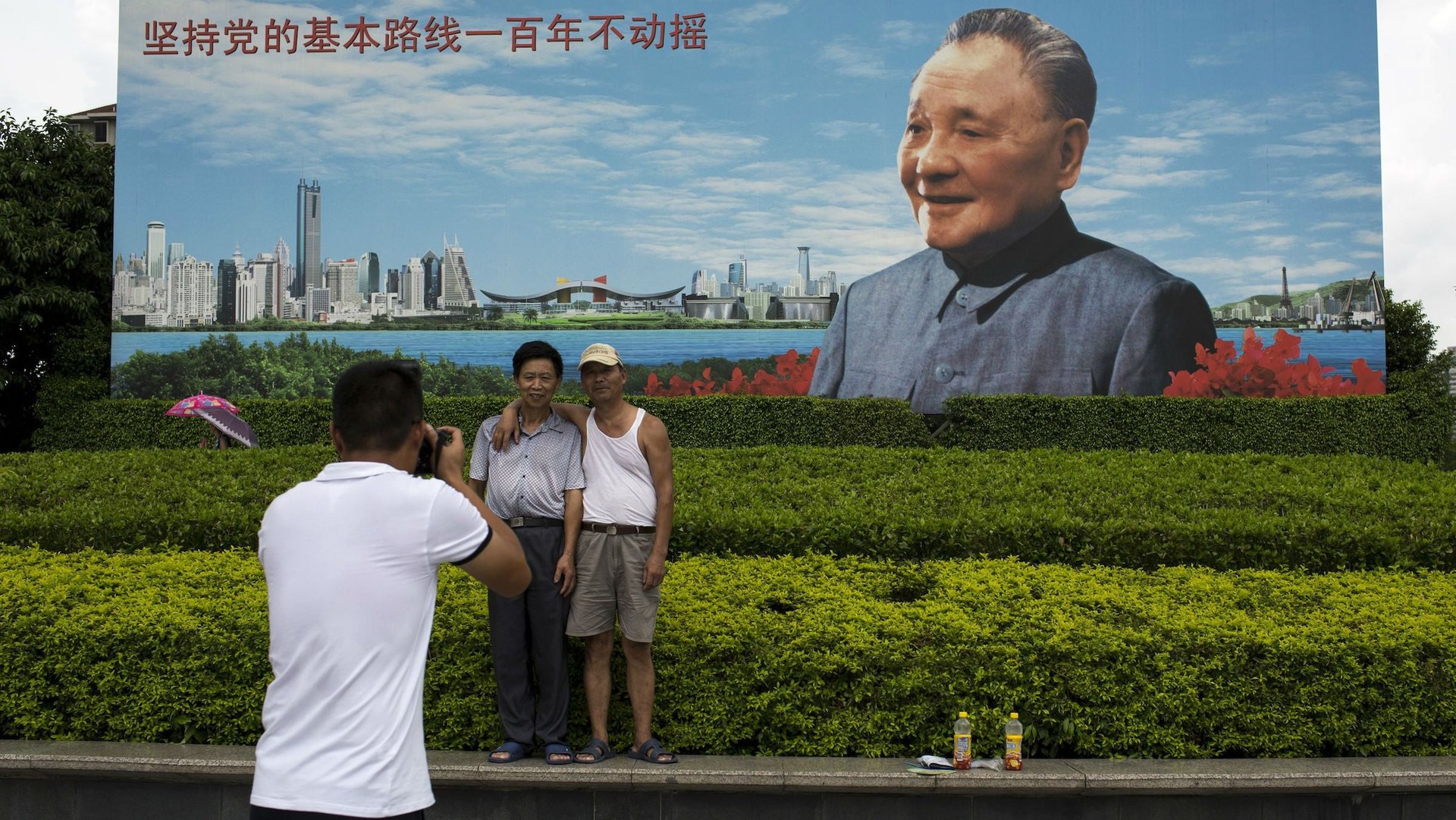

China pulled out all the stops for the birthday of the late Deng Xiaoping, the leader credited with opening and transforming the Chinese economy.
Today, on the 110th anniversary of his birth, Chinese media published photos and glowing tributes, as well an “exclusive interview“ (video in Chinese) with one of his former chefs. (Deng liked braised pork and preferred his food on the spicy side.) An official biography has been published, to be followed by a 48-part television drama, as well as another 20-part documentary. Seminars on Deng have been held in Beijing and Guangzhou. Two granddaughters of Deng brought his wheelchair to a commemoration in Hong Kong, whose return to China from British control in the 1990s was negotiated by Deng.
There’s a likely reason for all the pomp and circumstance for Deng: to draw parallels between the iconic late reformist and Chinas’ current leader, Xi Jinping, who has pledged to open an equally transformative chapter in China’s history. State media, as well as former US ambassador to China Jon Huntsman, have compared the two. Xi himself stresses his respect for Deng’s example.
Still, there are important differences between Xi and Deng. Xi is governing China after decades of what political analysts describe as “consensus-driven” leadership, unlike the rule under Deng or Mao Zedong, whose status and role in the communist revolution established their almost absolute authority over the party. “Xi’s power base is much weaker than Deng’s, so he has been using ideological campaigns and new media to increase his personal authority,” Wu Qiang, a politics professor at Tsinghua University, told the Financial Times.
Xi’s wide-reaching corruption campaign threatens to erode support within his party and others point out that so far, there’s little he has done that can be compared to the reform and opening up of the Chinese economy in the 1980s. “Does Xi really have any concrete reforms to his credit?” Zhao Chu, a political analyst, asked in the FT. “Deng spread real power to lower levels, but all we have seen in Xi’s tenure is the recentralisation of power and the beginnings of his own personality cult.”
Here’s what the tributes to Deng on and ahead of his birthday looked like:
